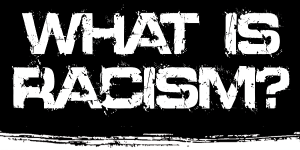 How long, O Lord? Will you forget me forever?
How long, O Lord? Will you forget me forever?
How long will you hide your face from me?
How long must I bear pain in my soul,
and have sorrow in my heart all day long?
How long shall my enemy be exalted over me?
Those are the words of lament that have been on my heart and mind from Psalm 13 this past week as I have been grieving the senseless murder of nine brothers and sisters in Christ at Emmanuel AME church. I have been weepy this past week when I think of this great tragedy. How long, Lord? How long? How long? Why? Why?
We at Sycamore Creek Church may not be familiar with our connection to the AME church. AME stands for African Methodist Episcopal. While we don’t wear it on our sleeve, Sycamore Creek Church is a United Methodist Church. Before the United Methodist Church was the UMC it was the Methodist Church. Before it was the Methodist Church it was the Methodist Episcopal Church. When it was the Methodist Episcopal Church some black brothers and sisters split off from the church in 1976 to begin their own church, the African Methodist Episcopal Church. They split off because of the Methodist Episcopal Church’s segregation policies.
The AME is the oldest Independent denomination founded by African Americans. It was founded by Richard Allen, a former slave whose slave holder after hearing a Methodist preacher preach against slavery was convicted to allow his slaves to buy their freedom. Allen became a Methodist preacher but was only allowed to preach to other blacks. Eventually the segregation led him to leave and start his own Methodist denomination. The AME is not the only church to leave the Methodist church over race issues. The AME Zion church and the CME (Colored/Christian Methodist Episcopal) are two other prominent examples.
You can see in the name African Methodist Episcopal the scar of the racism of our past. While there has been some very significant healing and reconciliation over the years, it is not complete. It is not complete in our church and it certainly not complete in our culture and nation as we saw this past week.
If you are like me you are asking, “What can I do?” I want to suggest four things you can do.
First, when someone tells you they are planning to hurt someone, let the appropriate people know. While I am bound by confidentiality as your pastor, there are two things that I will not and cannot hold in confidence. The first is if you tell me you plan to hurt yourself. If you tell me that I will not hold it in confidence. I will do what I can do to keep you safe. The second is if you tell me you are going to hurt someone else. If you tell me that, I will do what I can to keep safe those you plant to hurt. If I as your pastor cannot hold that confidence, then I want you to know that you should not hold it either. If you know someone is going to hurt someone, then let the appropriate authorities know.
Second, commit to resolving conflicts peaceably. As we talked about this past week in our current series, commit to fighting fair both with your spouse and with all those around you. Practice gentle start-ups. Learn how to complain without criticizing. Accept influence from those around you. Renegotiate your expectations peacefully when they are broken. Violence is never the answer to resolve conflicts.
Third, build diverse friendships with people who are different than you. This is a value I have personally and that our church shares as well. When was that last time you had someone over for dinner who was different than you ethnically or socioeconomically? When did you last eat a meal with someone who has a different sexual identity than you? Or someone who has different political ideas than you do? Friendship is a key to reconciliation. When you build friendships with people who are different than you, you begin to be able to see the world through their eyes.
I have had to look in the mirror this week and realize and confess that I have very few friends if any in Lansing who are different than me ethnically. My District Superintended suggested that we send notes to the pastor of the largest AME church in Lansing. I did not know her name. Why not? Why has it taken a severe tragedy for me to know that Rev. Lila Martin is the pastor of Trinity AME in Lansing? That’s part of the problem, isn’t it?
The fourth thing you can do is pray. Pray for the people of Emanuel A.M.E. and for the families of loved ones who were lost or wounded. Pray for the people of Charlestown, SC, and for our country. Pray for racial reconciliation, forgiveness, and healing around the world. Jesus stretches us to the breaking point when he commands us to pray for our enemies so pray for the perpetrator of this great crime. And pray for an end to violence. Lord have mercy.
Peace,
Pastor Tom
P.S. If you’d like to read some more thoughts on the issue of prejudice and racism, I offer this blog post I wrote a couple of years ago after the acquittal of George Zimmerman: Confessions of a White Pastor.


Recent Comments